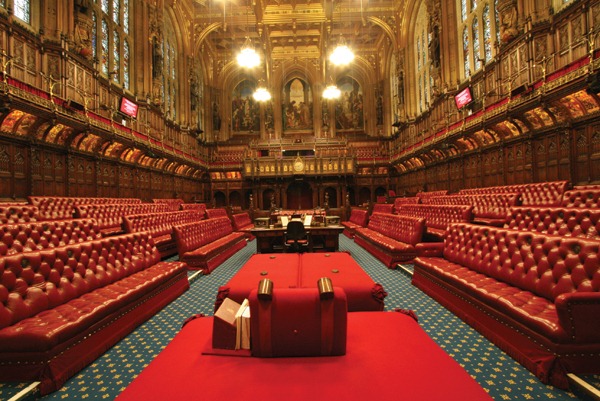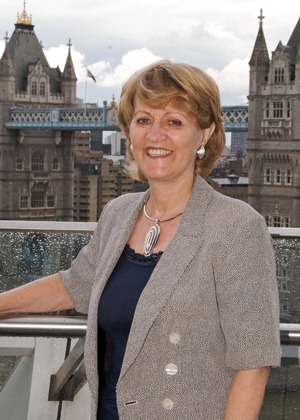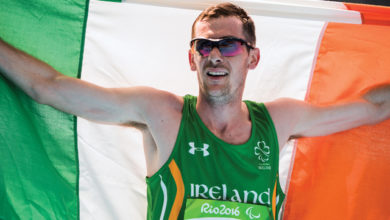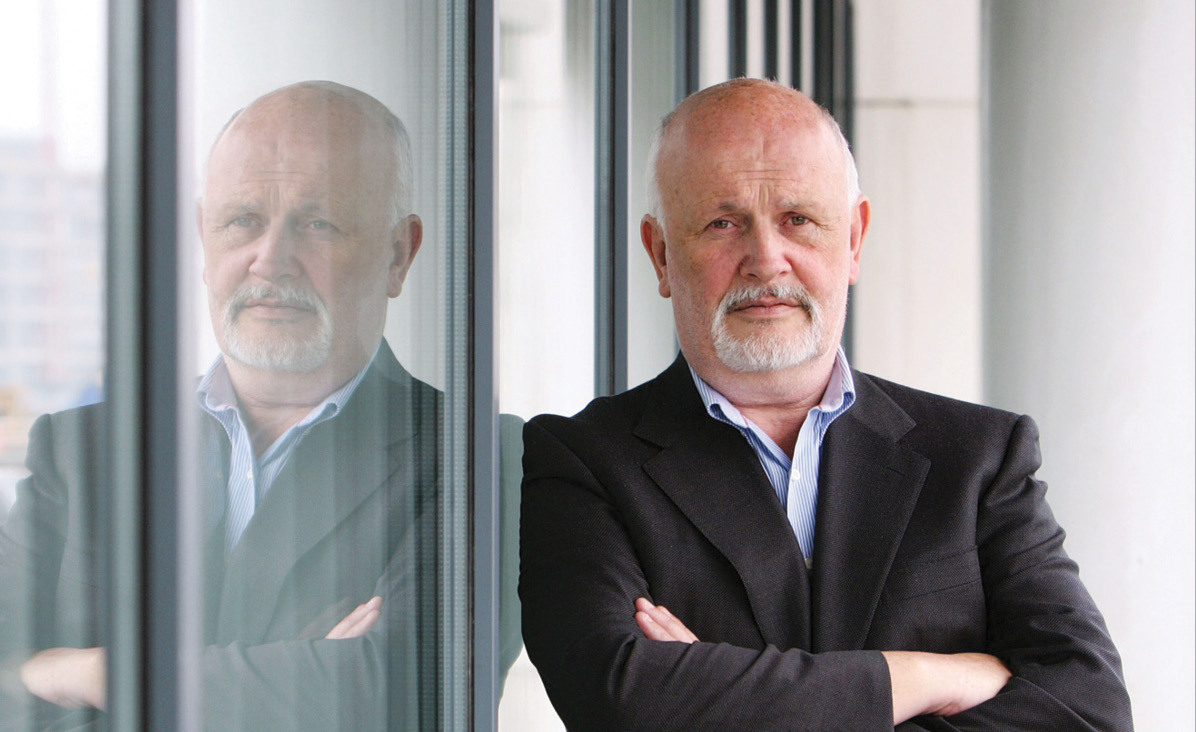From growing up on Dublin’s Pearse Street to being granted a life peerage in the House of Lords, Dee Doocey discusses her politics with Meadhbh Monahan.
“The Jesuits said: ‘Give me the child until he is seven and I will give you the man’ and I think that’s the truest thing because you are shaped by your formative years,” Dee Doocey states.
Born with double club feet, Deirdre O’Keefe spent many of her childhood years in hospital and regularly had plaster of Paris corrective treatment or wore calipers. This set her back educationally, but her intuition with maths was to stand her in good stead in the future. Her mother, Sheila Griffin, who had been quite a famous actress on the Irish stage, had to give up work once her daughter was born therefore Doocey’s family “went from a nice middle-class existence to a poor existence overnight.” Her saxophonist father spent his time in London seeking work and when she was 17, her family moved to be with him in Islington. “It wasn’t the flashy place it is today,” Doocey remarks.
She was elected to the London Assembly in 2004 and has focused on homelessness, disability and child trafficking.
“I guess that is a theme that has run through everything I have done in my life. I’m not in politics to help somebody park their second Volvo. I really am there to help people who can’t help themselves,” she says.
Involvement with the Liberal Democrats came about “by accident” and ultimately led to her becoming Business Secretary Vince Cable’s agent, firstly in the 1992 general election where he was unsuccessful and then in 1997 when he was elected MP for Twickenham.
Doocey’s new life as an Irish migrant in England was “horrendous, the worst time in my life.” A job as a shelf stacker in Tesco liberated her and enabled her to make new friends, but annoyed her parents who wanted her to go to university. In order to appease them she applied for a job as a book-keeper for the Liberal Democrat Party, where she stayed for over 20 years (10 as Financial Director).
“You just sort of get immersed,” she recalls. “At the beginning I wasn’t really involved but I love the passion for people who can’t help themselves. I love the idea of equality and fairness for all. All the things that appealed to me were the party’s reason d’être.”
From 1986 to 1994, she was elected as a councillor for Richmond upon Thames where she chaired the Housing Committee.
“During that time I met Vince Cable and [in 1997] organised the campaign that got him elected, and I’ve been his agent ever since,” she explains.
After eight years on the council (“which is long enough for anyone to be a councillor”) Doocey re-entered the private sector as Group Managing Director of an international fashion company which was in the process of moving production from China to Hong Kong. “That was an interesting period,” Doocey recalls. She was also involved in management consultancy, specialising in advising companies on how to be cost-effective.
When asked what lessons she learned and how she applies those to politics, Doocey responds: “What you learn in any sector, public or private, whether inside or outside politics, is the ability to motivate and manage people.”
A decision to get back into politics saw her being elected to the London Assembly (a 25-member body, elected alongside the Mayor every four years and tasked with holding the Mayor to account.)
“Assembly members have no power but a huge amount of influence; a bit like a newspaper,” Doocey contends.
She chairs the Economy, Culture and Sport Committee which looks at, for example, the future of the venues in the Olympic Park.
Doocey also chairs the Assembly’s Finance and Resources Committee and is a member of the Metropolitan Police Authority.
Peerage
Her life peerage coincided with her eighth year on the London Assembly, a time when she had been considering her next step.
“It means a huge amount to me. It is a culmination of my career and I’m thrilled to bits,” she surmises.
One year into the job and Doocey finds that it has been “a baptism of fire”.
“Your obviously dealing with a much greater audience and constituency,” she points out. During the first week of Doocey’s tenure in the House of Lords, the House was dealing with the Police Reform and Social Responsibility Bill.
“Normally, you’d sit on the back benches for six months but within a couple of weeks I was putting down eight amendments to that Bill.”
She cannot compare Westminster to the Oireachtas because she has never had direct experience of Irish politics. However she keeps abreast of the situation through her Irish relations.
“It’s pretty difficult, but then it’s pretty difficult [in the UK]; you honestly wonder where it’s all going to end,” she remarks.
“At the moment, far too many people at the bottom of the pile are paying increased taxes and levys and the people at the top of the pile are not being squeezed in the same direction. Most of the money is coming from those who can’t afford it.”
The Metropolitan Police Service is an “amazing organisation,” according to Doocey. Despite the phone hacking scandal, she contends that it is “very effective and is renowned throughout the world for its expertise in areas like forensics.” Lessons have been learned from that scandal, “mainly the need for transparency and openness.”
The riots which swept across England in the summer were “surreal” and David Cameron’s response, telling parents to take more responsibility, made her “very cross”.
“A lot of these young people don’t have parents,” she states. Senior police officers and community workers have confirmed that many of the rioters came from broken homes with “maybe two or three children to different fathers or mothers on drugs.”
Doocey continues: “It’s just not the same as growing up in a two-parent or one-parent loving home. Some have no parenting skills what-so-ever. They have been dragged up themselves and they are dragging their own children up.”
She points to ongoing projects such as Camila Batmanghelidjh’s Kids Company drop-in centre in Camberwell and Decima Francis’ From Boyhood to Manhood Foundation which educates gang members and keeps them off the streets.
“There’s just not enough of this work going on on the ground and there’s not enough funding for it.”
When asked if she has hope for the Prime Minister’s Big Society, she replies: “Not unless there’s some money to go with the Big Society.”
Instead of “re-inventing the wheel” money should be given to projects that are already working: “We know what needs to be done but it’s the people at the sharp end that should be doing it, rather than appointing another tsar who’s going to tell us what to do.”






